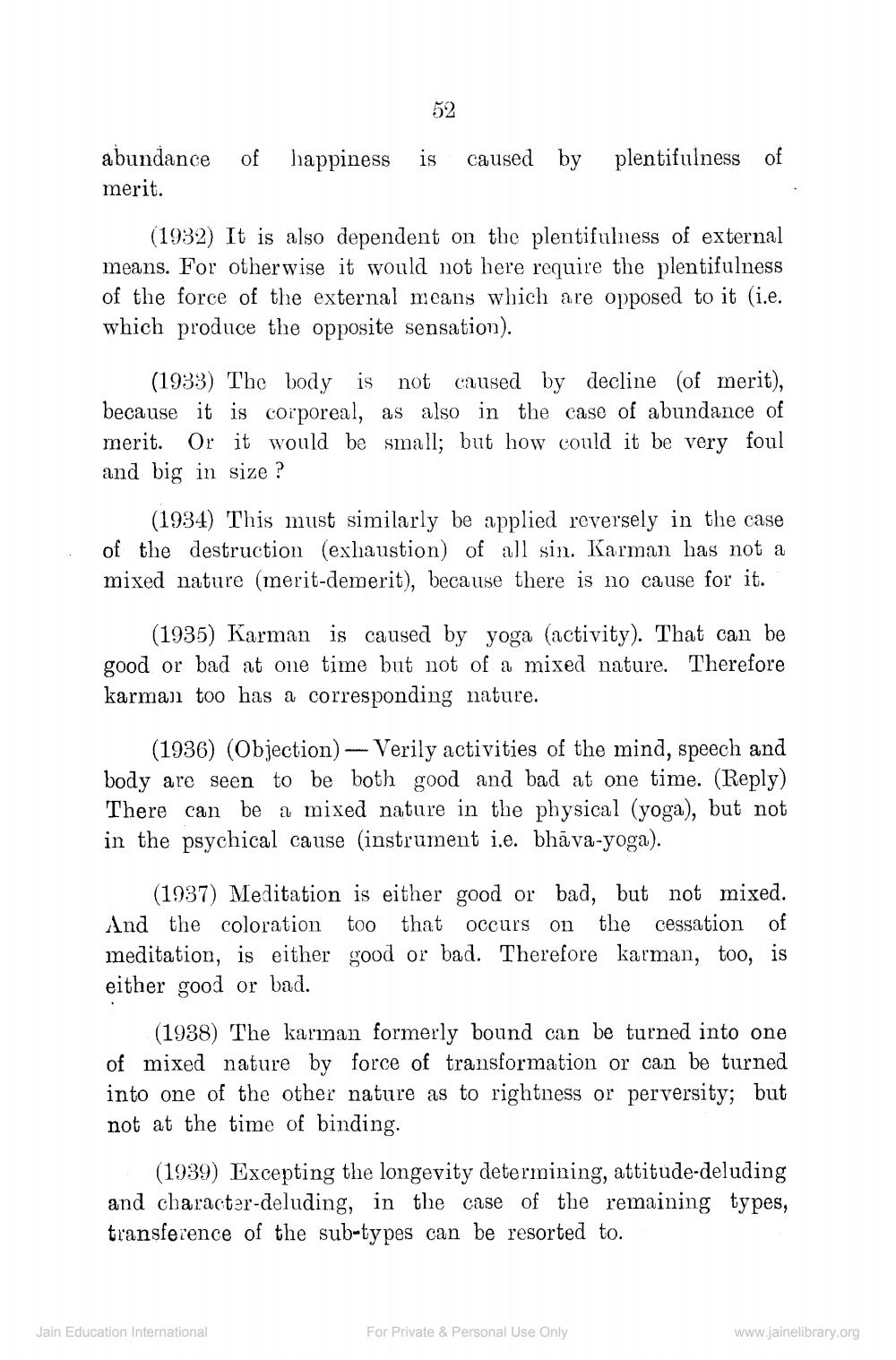________________
of
happiness
is
caused
by
plentifulness
of
abundance merit.
(1932) It is also dependent on the plentifulness of external means. For otherwise it would not here require the plentifulness of the force of the external means which are opposed to it (i.e. which produce the opposite sensation).
(1933) The body is not caused by decline (of merit), because it is corporeal, as also in the case of abundance of merit. Or it would be small; but how could it be very foul and big in size ?
(1934) This must similarly be applied reversely in the case of the destruction (exhaustion) of all sin. Karman has not a mixed nature (merit-demerit), because there is no cause for it.
(1935) Karman is caused by yoga (activity). That can be good or bad at one time but not of a mixed nature. Therefore karman too has a corresponding nature.
(1936) (Objection) - Verily activities of the mind, speech and body are seen to be both good and bad at one time. (Reply) There can be a mixed nature in the physical (yoga), but not in the psychical cause (instrument i.e. bhāva-yoga).
(1937) Meditation is either good or bad, but not mixed. And the coloration too that occurs on the cessation of meditation, is either good or bad. Therefore karman, too, is either good or bad.
(1938) The karman formerly bound can be turned into one of mixed nature by force of transformation or can be turned into one of the other nature as to rightness or perversity; but not at the time of binding.
(1939) Excepting the longevity determining, attitude-deluding and character-deluding, in the case of the remaining types, transference of the sub-ty pes can be resorted to.
Jain Education International
For Private & Personal Use Only
www.jainelibrary.org




